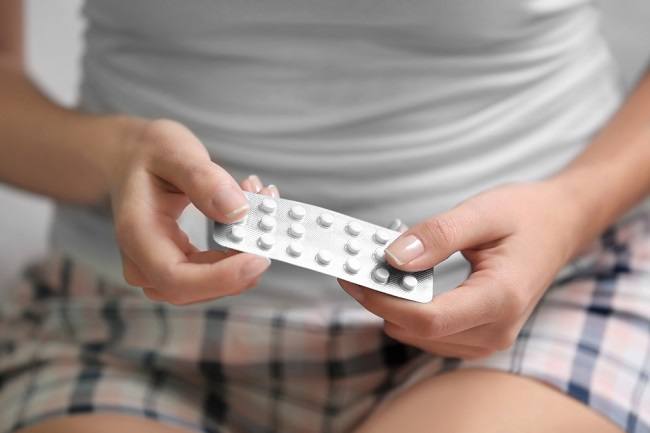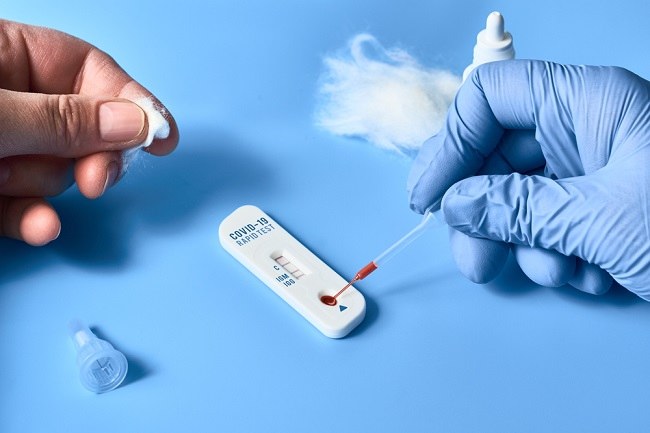Leflunomide is a drug to treat rheumatoid arthritis or psoriatic arthritis. This drug should not be used carelessly and must be in accordance with a doctor's prescription. Leflunomide is available in tablet form.
Rheumatoid arthritis is a condition in which the body's immune system or immune system attacks healthy joint cells, causing arthritis. Leflunomide will suppress the work of the immune system so that inflammation in the joints is reduced and joint swelling can subside.

Leflunomide trademark: Arava
What is Leflunomide
| group | Prescription drugs |
| Category | antirheumatic (disease-modifying antirheumatic drugs) |
| Benefit | Treat rheumatoid arthritis or psoriatic arthritis |
| Consumed by | Mature |
| Leflunomide for pregnant and lactating women | Category X: Studies in experimental animals and humans have demonstrated fetal abnormalities or a risk to the fetus. Drugs in this category should not be used by women who are or may become pregnant. It is not known whether leflunomide is absorbed into breast milk or not. If you are breastfeeding, do not use this medicine without consulting your doctor first. |
| Drug form | Tablet |
Precautions Before Taking Leflunomide
Leflunomide should only be used as prescribed by a doctor. Here are some things you need to pay attention to before taking leflunomide:
- Do not take leflunomide if you are allergic to this drug. Always tell your doctor about any allergies you have.
- Tell your doctor if you have liver failure, kidney failure, a serious infectious disease, or have a weakened immune system. Leflunomide should not be used in these patients.
- Tell your doctor if you have or have ever had tuberculosis, cancer, blood disorders, bone marrow disorders, alcoholism, high blood pressure, or lung disease.
- Do not drink alcohol while you are taking leflunomide, as this increases the risk of liver damage.
- As much as possible avoid close contact with people with infectious diseases that are easily transmitted, such as chickenpox or the flu, because these drugs can make it easier for you to get an infection.
- Tell your doctor if you plan to get vaccinated while you are taking leflunomide because this medicine may affect the effectiveness of the vaccine.
- Do not drive a vehicle or do activities that require alertness after taking leflunomide, as this medicine can cause dizziness.
- Tell your doctor if you are pregnant, breastfeeding, or planning a pregnancy. Use effective birth control while on treatment with leflunomide to prevent pregnancy.
- Tell your doctor if you are taking certain medications, supplements, or herbal products.
- See your doctor right away if you have an allergic drug reaction, serious side effect, or overdose after taking leflunomide.
Dosage and Instructions for Use of Leflunomide
The dose of leflunomide will be determined by the doctor. In general, the dose of leflunomide to treat rheumatoid arthritis or psoriatic arthritis for adults is 100 mg, once daily, for the first 3 days. The maintenance dose is 10–20 mg, once daily.
How to Take Leflunomide Correctly
Read the instructions on the medicine package and follow the doctor's advice before taking leflunomide. Do not reduce or increase the dose without consulting your doctor first.
Leflunomide can be taken before or after meals. Swallow this medicine whole. Do not crush, chew, or split this medication as this may affect the effectiveness of the drug.
If you forget to take leflunomide, take it immediately if it is not near the time for your next dose. If it is near, ignore the missed dose. Do not double the dose of leflunomide to make up for a missed dose.
During treatment with leflunomide, you will be asked to have regular check-ups and have regular blood tests and liver function tests.
Store leflunomide at room temperature and store in a closed container. Keep the medicine away from direct sunlight and out of reach of children.
Leflunomide Interactions with Other Drugs
The following are some of the effects of interactions that may occur if leflunomide is taken together with other medicines:
- Decreased blood levels of leflunomide if taken with cholestyramine, activated charcoal, or rifampicin
- Increased risk of liver damage if taken with aspirin, celecoxib, methotrexate, acarbose, amiodarone, bupropion, ketorolac, or acetaminophen
- Increased risk of developing anemia if taken with hydroxychloroquine or infliximab
- Increased risk of severe infectious disease if taken with busulfan, cortisone, or hydroxyurea
- Increased risk of side effects from live vaccines, such as the BCG vaccine
In addition, if leflunomide is taken with alcoholic beverages, the risk of liver damage increases. When used with echinacea, the therapeutic effect of leflunomide may be decreased.
Side Effects and Dangers of Leflunomide
Some of the side effects that can occur after taking leflunomide are:
- Back pain
- Stomach pain or heartburn
- Hair loss
- Nausea and vomiting
- Diarrhea
- Nauseous
- Dizzy
- Loss of appetite
- Drastic weight loss
Consult a doctor if the above complaints do not subside. See your doctor right away if you have an allergic reaction to a medication or experience more serious side effects, such as:
- Bloody urine, pain, burning, or difficulty urinating
- Easy bruising
- High blood pressure
- Blurred vision
- Chest pain, palpitations, or fast heart rate
- Unusual mood swings or fatigue
- Jaundice
- Tingling or numbness in the fingers and toes
In addition, this drug can also increase the risk for infection. Call your doctor right away if you have a fever, chills, swollen lymph nodes, or sore throat that doesn't get better.









